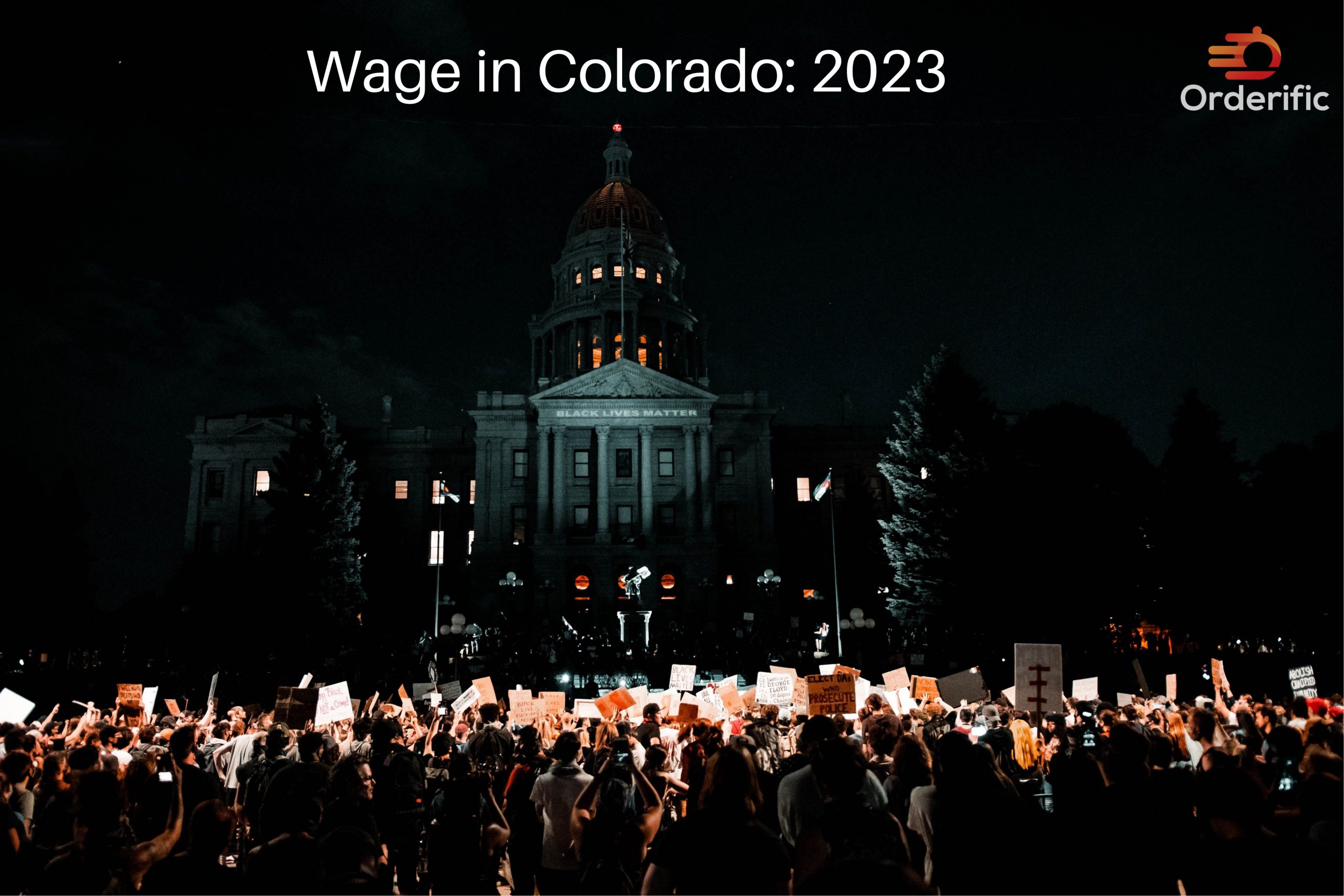Key Insights and Changes for Employers
The state of Colorado is dedicated to creating a fair environment for both employees and employers. With ever-changing labor laws and regulations, it’s vital for everyone involved to stay informed about the latest updates in terms of minimum wage and other relevant policies. As of January 1, 2023, Colorado has set the state minimum wage rate at $13.65 per hour, surpassing the federal minimum of $7.25. This increase benefits employees and influences business practices throughout the state, including in Denver.
Throughout Colorado, fair labor practices are promoted by the Fair Labor Standards Act and the state’s minimum wage laws. These laws govern overtime pay, tipped workers, and local minimum wages. Local government and city council efforts further strengthen employee rights in Denver and other cities across the state. Tipped employees experience a unique situation whereby their minimum wage may differ from the standard, as they often receive additional tips. It’s essential for tipped workers and their employers to be aware of their rights and responsibilities under the law.
A strong focus is ensuring employees receive a fair wage for their work hours. Overtime policies are implemented to protect overtime workers, requiring employers to provide additional compensation for the extra effort. As the landscape of labor laws continues to shift, Colorado employers and employees must stay informed about their rights and obligations in the workplace. Staying educated about the intricacies of Colorado’s minimum wage, overtime regulations, and labor standards will ensure a more harmonious and fruitful environment for all parties involved.
What is the minimum wage in Colorado?
As of July 26, 2023, the minimum wage in Colorado is $13.65 per hour. This rate is higher than the federal minimum wage of $7.25 per hour, so Colorado employers must pay their workers the state minimum wage as required by Colorado law. No more than $3.02 per hour in tip income may be used to offset the minimum wage of tipped employees. However, some specific rules and exemptions apply to certain employees, such as tipped workers. In this section, we’ll cover the general minimum wage rates and the particular rules for tipped employees, including tip credit and the tipped minimum wage.
These are the key points that you need to pay close attention to.
1. How to Hire for the Future of Restaurant People
When hiring employees for your restaurant, it’s essential to understand the minimum wage requirements, particularly for tipped workers. The tipped minimum wage in Colorado is currently $8.65 per hour (the state minimum wage minus the maximum tip credit of $5.00). As an employer, you should ensure that the combination of your employees’ salaries and their tips meets or exceeds the standard minimum wage. This will ensure your compliance with the state labor laws by paying your workers reasonably.
2. How to Staff a Restaurant with the Right Positions
Understanding the minimum wage requirements for different employee positions is crucial when staffing your restaurant. Ensure you know the regulations for both tipped and non-tipped workers, and consider how these rates may impact your hiring decisions. For example, if you’re hiring both servers (who receive tips) and cooks (who may not receive tips), be aware of the differing minimum wage rates and factor these into your costs and budgeting decisions accordingly.
3. How to Calculate Your Restaurant’s Prime Cost
To calculate its prime cost, you should follow these steps:
- Determine your Cost of Goods Sold (COGS): Start by calculating your COGS for a specific period, such as one week. To do this, use the formula: Starting Inventory + Purchases – Ending Inventory = COGS. For example, if your starting Inventory is $10,000, purchases are $2,000, and ending Inventory is $8,000, your COGS would be $4,000.
- Calculate your Total Labor Cost: Add up employee wages, taxes, benefits, and insurance for the same period you calculated COGS. For instance, if your employees earned $5,000 in wages, and the total taxes, benefits, and insurance were $1,000, your total labor cost would be $6,000.
- Find your Prime Cost: Add the COGS and total labor cost together to determine your prime cost. Your primary cost would be $4,000 (COGS) + $6,000 (total labor cost) = $10,000.
When calculating it, remember that you’ll need to consider labor and material costs, including the minimum wage requirements. A clear understanding of the various wages within your business, such as the standard minimum wage, tipped minimum wage, and overtime pay rates, will help you make informed decisions and keep your labor costs under control. Remember, keeping your labor costs in line is essential for maintaining profitability and ensuring the long-term success of your restaurant.
4. Minimum Wage Rates in Colorado
In Colorado, the minimum wage for non-tipped employees is $13.65 per hour, while the tipped minimum is $8.65 per hour. However, remember that you’ll need to make up the difference if your tipped employees’ total earnings (wages and tips) fall short of the standard minimum wage. As an employer, it’s your responsibility to ensure that your employees are paid following Colorado law and that you remain up-to-date with any minimum wage increases that may occur in the future. This will help protect your employees and business, ensuring a fair and compliant workplace.
Conclusion
Colorado’s minimum wage for 2023 is $13.65 per hour, with a separate rate for tipped employees at $9.54 per hour. Both employers and employees in the state should understand the applicable regulations related to minimum wage and fair labor standards. The Colorado Department of Labor and Employment and its Division of Labor Standards and Statistics enforces these regulations. It ensures compliance with the Colorado Overtime & Minimum Pay Standards (COMPS) Order #38.
As an active employee in Colorado, knowing the differences in wage rates for various cities is crucial, as local governments may have different regulations. Additionally, understanding the exemptions and differences in treatment for tipped workers, non-exempt employees, and employers is vital.
Over the years, Colorado voters have played a significant role in determining minimum wage increases and related legislation. Annual increases in the minimum wage will protect workers from inflation and maintain a fair standard of living. Comparatively, the federal minimum wage is $7.25, lower than the current Colorado state minimum wage.
In summary, employers and employees must stay updated on Colorado’s minimum wage laws and any possible changes. Knowledge of local regulations, employer categories, and wages for different types of employees can help ensure fair treatment for everyone.
To remain informed and aware of further changes and updates related to corresponding laws and policies, consider subscribing to Orderific.
Frequently Asked Questions
What is the current minimum wage in Colorado, and has it undergone recent changes or updates?
As of 2023, the minimum wage in Colorado is $13.65 per hour, up from $12.56 on January 1, 2022. For tipped employees, the rate is $10.63 per hour, $3.02 below the regular minimum wage.
Can you provide information on the legislative process behind determining the minimum wage in Colorado?
COMPS Order #38 and the Department of Labor & Employment determine the minimum wage.
Are there any exemptions or special conditions for specific industries or workers regarding the minimum wage?
Certain managerial, administrative, and professional employees may have specific minimum salary requirements.
How does the Colorado minimum wage compare to the federal minimum and minimum wages in neighboring states?
Its minimum wage of $13.65 significantly exceeds the federal minimum wage of $7.25, regulated by the FLSA.













